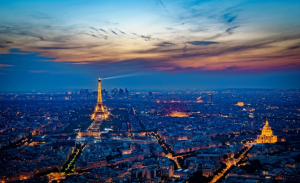A new Pirates of the Caribbean film is in the works, with the franchise being beloved by fans and having grossed over $4.5 billion worldwide at the box office. The previous films starred Johnny Depp, Orlando Bloom, and Kiera Knightley, and the last installment was released in 2017. Plans for a sixth film have been in development since 2017, but were delayed due to Johnny Depp’s legal battles with his ex-wife, Amber Heard. There were also talks of a female-led spinoff film starring Margot Robbie that was eventually canceled.
The reboot film was first announced in June 2020, with Jerry Bruckheimer confirming that they were still working on the screenplay. While no official title or plot details have been revealed, it has been confirmed that the film will have a new cast. Jerry mentioned that they were in talks with Margot Robbie about the project. Despite delays, the reboot is still happening, but the release date is uncertain. Johnny Depp, who played Captain Jack Sparrow in the previous films, will not be returning to the franchise.
Johnny Depp’s future in the Pirates of the Caribbean franchise was jeopardized by allegations of domestic abuse made by Amber Heard in 2018. Depp was set to star in the sixth film, but following the allegations, Disney cut ties with him. Johnny testified that he wanted to give his character a proper goodbye in the sixth film, but Disney went in a different direction. Despite not being part of the future films, Disney still features Jack Sparrow at their theme parks. Johnny won the defamation trial against Amber Heard.
Fans were disappointed by the news that Johnny Depp would not be returning to the Pirates franchise, with many threatening to boycott the film without him. Margot Robbie was initially announced as the new lead in the reboot film in June 2020, but she later revealed that the project had been canceled. The film was supposed to feature a female-led story, but Margot shared that the idea was not pursued by the studios. There were talks of developing two different Pirates scripts – one with Margot Robbie and one without. Margot Robbie never publicly addressed her involvement in the franchise until November 2022.
Jerry Bruckheimer confirmed that the Pirates of the Caribbean reboot film is still in the works, but with a new cast and potentially new characters. The future of the franchise remains uncertain, with fans expressing their disappointment over the decision to not include Johnny Depp in future films. Despite the setbacks and changes in cast, the Pirates of the Caribbean franchise continues to be a popular and lucrative series for Disney. It remains to be seen how the new film will be received by audiences without the iconic character of Captain Jack Sparrow.








